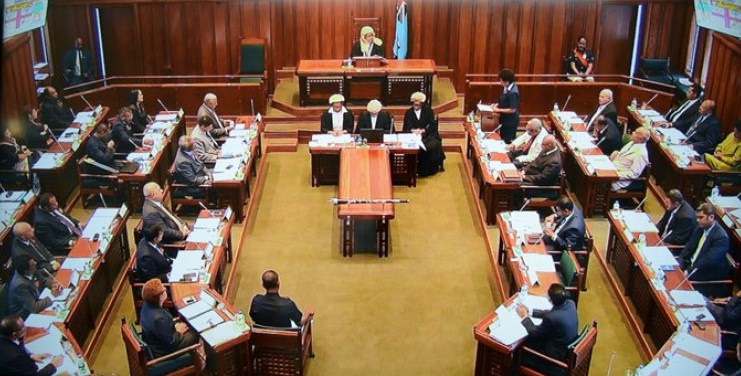IT has been reported that the Government intends to amend the law (Criminal Procedure Amendment Bill No 2 of 2021) later this week to remove the assessor system in criminal trials.
This will leave the judge alone to determine the guilt or otherwise of accused persons. Predating Fiji’s independence in 1970, criminal trials with a judge supported by assessors (three or five) have taken place in the High Court.
Under the assessor system, the assessors are required to give their opinion on issues of fact.
They are the judges of “fact”.
The judge is not obliged to accept the opinion of the assessors but if he declines to accept the majority opinion, the law requires that he set out reasons for doing so.
The assessor system is not perfect. Neither is a trial by jury. In most cases (but not all), despite the shortcomings and possible “failings” of some assessors, Fiji’s experience is that assessors have gotten it right most of the time.
They take their roles seriously after careful reviews of the evidence.
In most cases, the judge agrees with their opinions.
Historically, the number of cases where the judge has disagreed with the majority of the assessors’ opinions is relatively small.
Citizen participation in assessor criminal trials is an important aspect of criminal justice in this country.
It allows ordinary men and women to participate in the trial of their compatriots.
It lends greater transparency to the process.
The collective wisdom of lay persons in a criminal trial is of great assistance to the judge.
The removal of criminal trials with assessors takes away that assistance. In my view that would be a retrograde step.
Assessors also bring a local insight into criminal trials which may not be available, especially to a judge who is an expatriate.
Assessors are more familiar with local conditions, customs and circumstances.
Overseas judges would obviously be lacking these perspectives.
The Fiji Law Society has rightly pointed out that assessor participation sustains public confidence in our judicial system and that leaving the question of guilt or innocence in serious cases to a single judge without an accused having a choice in the matter, is neither fair nor just.
If the decision of the assessors is plainly wrong or perverse, the law allows the judge to overturn that decision.
It must be a written decision and it must be pronounced in open court. Citizens bring their experience of Fiji and world affairs into criminal trials, and it helps in their determination of the guilt or otherwise of an accused person.
It provides a healthy check and balance in the system and mitigates the possibility of the judge himself or herself getting it wrong.
Judges after all are not infallible – they make mistakes too from time to time. So too, assessors.
The allegation of collusion between lawyers and court staff to stack the panel of assessors as a reason to abolish trials with assessors, is serious.
If it has occurred, (and this has not been substantiated), there are ways of ensuring that it is prevented from reoccurring.
Anyone responsible should be taken to task for misconduct.
There is no evidence that the practice in any event, is widespread or even occurring.
To my knowledge, no charges for interfering with the course of justice have been laid against any lawyer or registry official for tampering with assessor lists.
Finally, the claim that assessors lack the sophistication to deal with complex matters before them is simplistic and patronizing. The intelligence of the “ordinary Fiji citizen” should not be underestimated.
Appearances can be deceptive. Practice has shown that most assessors have been and are diligent in their roles.
The oath they swear upon being appointed is faithfully respected.
Removal of trials with assessors in my view will contribute to a weakening of the rule of law.
Assessors are a useful “buffer” between the judge and the accused.
I would urge the Government to undertake consultations with the Law Society, the wider community, and members of the legal profession, and to allow a longer period of gestation before the Bill is read a second time.
Why is this Bill being rushed?
The likely passage of the Criminal Procedure Amendment Bill 2021 will not be an occasion for celebration. If the system is not broken, there is no need to fix it.
- Graham Leung is the former president of the Fiji Law Society. The views expressed here are his and not necessarily shared by this newspaper.



